Abandono Infantil: Una Mirada Desde la Estructura Psíquica | Child Abandonment: A View from the Psychic Structure [ESP] - [ENG]

Hola, hola mis queridos amigos y amigas de la #colmena, por acá vengo nuevamente trayéndoles mis investigaciones de temas que me resultan relevantes para la comunidad, en esta oportunidad, analizando las mil formas de cómo tratamos en mi núcleo familiar de que mi pequeña Zarisha, se encuentre cuidada, querida, agradada y sobretodo, en compañía de un entorno que le demuestre afecto, de modo que no llegue al estado de sentirse, abandonada, o desatendida; he querido hacer un estudio sobre el abandono infantil y el efecto que esto acarrea a nivel psicológico, espero les guste.
Hello, hello my dear friends of the #hive, here I come again bringing you my research on topics that I find relevant to the community, this time, analyzing the thousand ways of how we try in my family that my little Zarisha, is cared for, loved, liked and above all, in the company of an environment that shows affection, so that it does not reach the state of feeling abandoned or neglected; I wanted to make a study on child abandonment and the effect this has on a psychological level, I hope you like it.

ABANDONMENT, An approach from the perspective of child maltreatment.
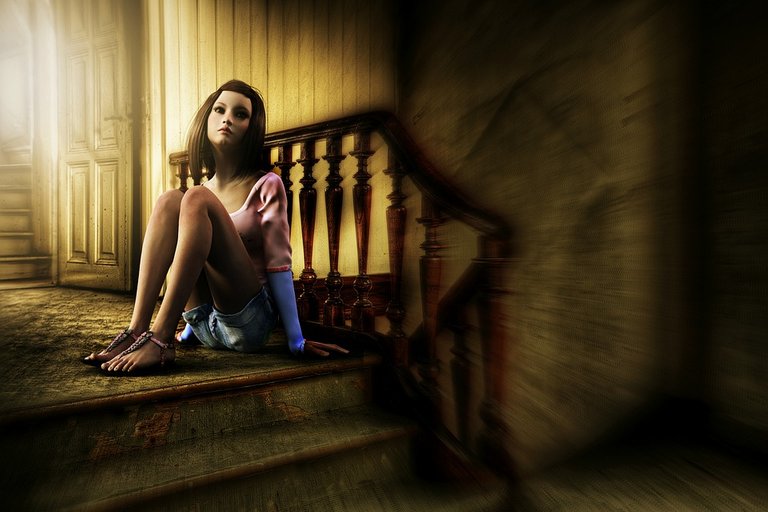
A la hora de pensar el abandono, se hace necesario enmarcarlo como una forma de maltrato infantil. Se entiende al maltrato como una problemática social compleja, estudiada desde diversas perspectivas y varios autores. Se denomina maltrato infantil a la acción u omisión por parte de los padres o de quien esté a cargo de un niño dentro de su hogar, de esta forma se está otorgándole la responsabilidad y la culpa a los padres. Esta conducta no es accidental por parte de los adultos responsables y genera problemas a nivel físico y psicológico en el chico.
When thinking about abandonment, it is necessary to frame it as a form of child abuse. Abuse is understood as a complex social problem, studied from different perspectives and by different authors. Child maltreatment is the action or omission by parents or whoever is in charge of a child at home, thus giving responsibility and blame to the parents. This behavior is not accidental on the part of the responsible adults and generates physical and psychological problems in the child.

A su vez, hay definiciones que adjudican la responsabilidad a grupos de entidades e instituciones la satisfacción de las necesidades que son básicas para los niños (alimentación, higiene personal, vestimenta, entre otras). Esta definición le quita la responsabilidad al adulto que está a cargo del chico, recayendo de esta manera en la sociedad.
In turn, there are definitions that assign responsibility to groups of entities and institutions for the satisfaction of children's basic needs (food, personal hygiene, clothing, among others). This definition takes the responsibility away from the adult in charge of the child, thus falling on society.


Por otra parte, citando a la Asamblea General de la Organización de Naciones Unidas de 1989, denomina al maltrato infantil como una “forma de violencia, perjuicio o abuso físico o mental, descuido o trato negligente, malos tratos o explotación mientras que el niño se encuentra bajo custodia de sus padres, de un tutor o de cualquier otra persona que le tenga a su cargo”.
On the other hand, citing the 1989 United Nations General Assembly, child abuse is defined as a "form of physical or mental violence, injury or abuse, neglect or negligent treatment, maltreatment or exploitation while the child is in the care of a parent, guardian or any other person who has the care of the child".

El maltrato infantil se puede manifestar en la forma de: abuso físico, sexual, emocional, abandono físico, abandono emocional y por ser testigos de violencia; una de las clasificaciones categoriza los tipos de maltratos según el ámbito en el que ocurre: maltrato intrafamiliar y maltrato extrafamiliar. Cuando el maltrato ocurre dentro del ámbito familiar en el que se desarrolla el niño, el agresor puede ser cualquier miembro de la familia con el que vive el chico. Puede aparecer como negligencia, abandono físico y/o emocional, sexual y Síndrome de Münchhausen por poderes.
Child maltreatment can manifest itself in the form of: physical, sexual, emotional abuse, physical neglect, emotional neglect and witnessing violence; one of the classifications categorizes the types of maltreatment according to the environment in which it occurs: intrafamilial maltreatment and extrafamilial maltreatment. When the maltreatment occurs within the family environment in which the child develops, the aggressor can be any member of the family with whom the child lives. It can appear as neglect, physical and/or emotional abandonment, sexual and Münchhausen Syndrome by proxy.

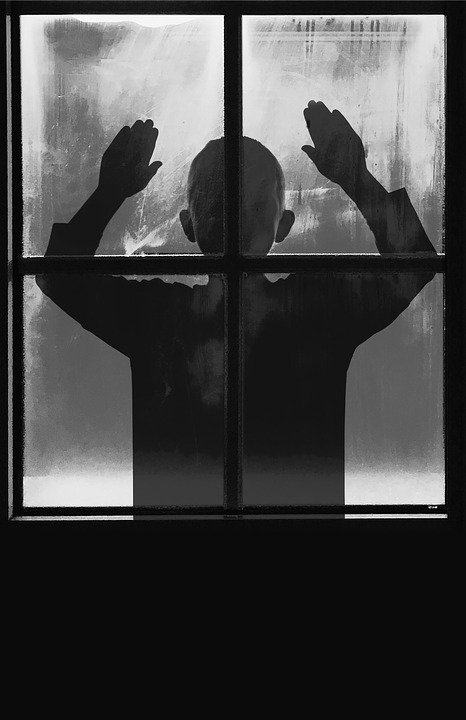
En tanto, el maltrato extrafamiliar, puede ser ejercido a un solo niño o en grupo. Dicho maltrato puede manifestarse como maltrato institucional (escolar, sanitario, jurídico), explotación laboral, abuso sexual, entre otros. También se pueden distinguir dependiendo de si las conductas maltratadoras se realizan por acción (los abusos y maltratos) o por omisión (abandono o negligencia) y a su vez si el daño es a nivel físico o emocional. De acuerdo a la temática que concierne, se va a desarrollar el abandono, ya sea físico y/o emocional.
Extrafamilial maltreatment can be exercised on a single child or in a group. Such mistreatment can be manifested as institutional mistreatment (school, health, legal), labor exploitation, sexual abuse, among others. They can also be distinguished depending on whether the maltreating behaviors are carried out by action (abuse and maltreatment) or by omission (abandonment or negligence) and whether the damage is physical or emotional. According to the subject matter, abandonment, whether physical and/or emotional, will be developed.

Physical and emotional neglect
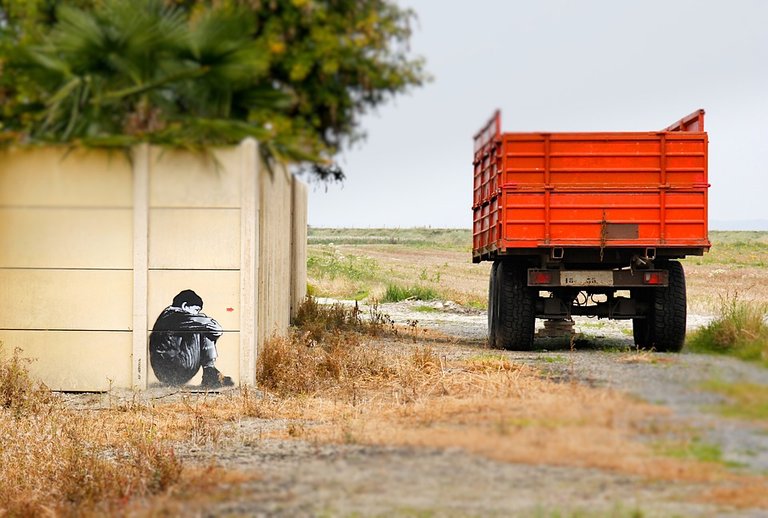
Son “aquellas actuaciones inconvenientes por parte de los responsables del cuidado y educación del niño, ante sus necesidades físicas, sociales, psicológicas e intelectuales, incluyendo también una falta de previsión del futuro”.
They are "those inconvenient actions on the part of those responsible for the care and education of the child, in the face of their physical, social, psychological and intellectual needs, including a lack of foresight for the future".

Algunos indicadores que pueden verse en el niño por la presencia de abandono físico están relacionados con las necesidades básicas: en la alimentación, cuando el niño está hambriento (poca comida, en mal estado o no es acorde al momento evolutivo que vive el niño), la inadecuada vestimenta de acuerdo a la temperatura, la permanente suciedad y poca higiene corporal, la ausencia de consultas médicas, la falta de vigilancia durante varias horas (generando accidentes domésticos), entre otras. Así como también la conducta social (pasivos, complacidos) así como en la escolar, trastornos en la alimentación, pérdida de contacto con la realidad, entre otras.
Some indicators that can be seen in the child by the presence of physical neglect are related to basic needs: in feeding, when the child is hungry (little food, in poor condition or not in accordance with the evolutionary moment the child lives), inadequate clothing according to the temperature, permanent dirt and poor body hygiene, lack of medical consultations, lack of supervision for several hours (generating domestic accidents), among others. As well as social behavior (passive, complacent) as well as school behavior, eating disorders, loss of contact with reality, among others.

Deben darse al menos uno de estos indicadores, y de forma repetitiva y prolongada. A su vez se tiene que tener en cuenta la edad del niño cuando aparece dicha situación, la intensidad, duración y la resistencia que presente el chico.
At least one of these indicators must be present, and in a repetitive and prolonged manner. At the same time, the age of the child when this situation appears, the intensity, duration and resistance of the child must be taken into account.

PSYCHIC STRUCTURING.

Es muy importante el rol que juegan los padres, ya que como se manifiesta en la Declaración de los Derechos del Niño, este “por su falta de madurez física y mental, necesita protección y cuidado especiales, incluso la debida protección legal, tanto antes como después del nacimiento”. Así como también “reconociendo que el niño, para el pleno y armonioso desarrollo de su personalidad, debe crecer en el seno de la familia, en un ambiente de felicidad, amor y comprensión”.
The role played by parents is very important, since, as stated in the Declaration of the Rights of the Child, the child "by reason of his physical and mental immaturity, needs special protection and care, including appropriate legal protection, both before and after birth". As well as "recognizing that the child, for the full and harmonious development of his personality, should grow up in the bosom of the family, in an atmosphere of happiness, love and understanding".

First moments of psychic structuring.

Freud (1926) explica que, “la primera vivencia de angustia y en consecuencia la fuente y el modelo del afecto de angustia” es el nacimiento. Por lo que, algo de lo que se pierde al nacer se recupera en el momento que se da el primer contacto de la madre con el hijo. Desde los cuatro meses y medio de embarazo, este tiene una sensorialidad dada por medio de su madre, como son los sonidos, olores, ritmos cardíacos. Estudios han demostrado que los bebés adquieren una base estructural que le permite desarrollar capacidades sensoriales, cognitivas y de aprendizaje debido a la interacción con su madre, dando lugar a las primeras vivencias de placer y displacer en la vida intrauterina. También influye la alimentación que ingiere su madre, las drogas que consume, las sustancias hormonales que se dan con sus estados emocionales.
Freud (1926) explains that "the first experience of distress and consequently the source and model of the distress affect" is birth. Therefore, something of what is lost at birth is recovered at the moment of the first contact of the mother with the child. From four and a half months of pregnancy, the baby has a sensoriality given by its mother, such as sounds, smells, heart rhythms. Studies have shown that babies acquire a structural base that allows them to develop sensory, cognitive and learning abilities due to the interaction with their mother, giving rise to the first experiences of pleasure and displeasure in intrauterine life. It is also influenced by the food their mother eats, the drugs she consumes, the hormonal substances that occur with her emotional states.

Esto sucede ya que influyen en la formación de la placenta (se modifica el líquido amniótico, que ingiere el feto constantemente desde los tres a los seis meses) y por lo tanto llegan a su hijo gestado muchas veces como estímulos dolorosos que pueden generar una intensa retracción o la muerte. Cuando el bebé es separado (por ejemplo por un abandono) de manera brusca y dura de su madre, pierde el mundo sensorialmente conocido, y pasa a estar en presencia de un mundo hostil, ajeno a este. A partir de la separación corporal, el bebé vive una experiencia desintegradora y desestructurante, siente que pierde una parte de su propio cuerpo ya que para este y su madre, ambos son uno.
This happens because they influence the formation of the placenta (the amniotic fluid, which is constantly ingested by the fetus from three to six months of age, is modified) and therefore reach the pregnant child many times as painful stimuli that can generate an intense retraction or death. When the baby is separated (for example by abandonment) in an abrupt and hard way from its mother, it loses the sensorially known world, and comes to be in the presence of a hostile world, alien to it. From the moment of bodily separation, the baby lives a disintegrating and destructuring experience, he feels that he loses a part of his own body since for him and his mother, both are one.


Al hablar del aparato psíquico se hace énfasis, que el mismo tiene un polo sensorial, que recibe las percepciones y otro polo motor, que permite la motilidad. Estas percepciones cuando son captadas por el sujeto quedan como una huella mnémica, a la cual está asociada la función memoria. La percepción recibida es recepcionada por la parte sensorial del aparato psíquico, pero esta no la conserva, sino que asociada a un segundo sistema, crea una huella permanente. Estos recuerdos son inconscientes, pero se pueden volver conscientes. Sin embargo, es en el estado inconsciente que generan efectos. “Lo que llamamos nuestro carácter se basa en las huellas mnémicas de nuestras impresiones; y por cierto las que nos produjeron un efecto más fuerte, las de nuestra primera juventud, son las que casi nunca devienen consientes”.
When speaking of the psychic apparatus, it is emphasized that it has a sensory pole, which receives perceptions and another motor pole, which allows motility. These perceptions, when captured by the subject, remain as a mnemic trace, to which the memory function is associated. The received perception is received by the sensory part of the psychic apparatus, but it does not conserve it, but associated with a second system, it creates a permanent trace. These memories are unconscious, but can become conscious. However, it is in the unconscious state that they generate effects. "What we call our character is based on the mnemic traces of our impressions; and certainly those which produced the strongest effect on us, those of our earliest youth, are those which almost never become conscious."

Sin embargo tomando a Freud, desarrolla lo que denomina “lo inaprehensible del tiempo físico”. Explica que hay un momento de la vida somato-psíquica que no se puede recordar debido a que la memoria depende de las huellas mnémicas marcadas por representaciones idéicas. Sin embargo piensa que a través del cuerpo puede quedar un registro de esos sucesos que no pudieron ser registrados como huellas mnémicas, como son, por ejemplo las cicatrices (tal vez el niño no recuerde que le sucedió pero mediante la marca en su cuerpo supo que algo paso). Este concepto también se da durante la vida intrauterina. Ya que durante el periodo de gestación se producen intercambios biológicos y emocionales que marcan los primeros encuentros entre la madre y su hijo.
However, taking Freud, he develops what he calls "the ungraspable of physical time". He explains that there is a moment of somato-psychic life that cannot be remembered because memory depends on mnemic traces marked by idéic representations. However, he thinks that through the body there can be a record of those events that could not be registered as mnemic traces, such as, for example, scars (perhaps the child does not remember what happened to him but through the mark on his body he knew that something happened). This concept also occurs during intrauterine life. During the gestation period there are biological and emotional exchanges that mark the first encounters between mother and child.

PSYCHOLOGICAL CONSEQUENCES OF ABANDONMENT

El abandono infantil genera mayor cantidad y grado de dificultades entre los cinco y seis años. Algunos de estos problemas están relacionados con una disminución del rendimiento cognitivo, ansiedad, distracción y falta de motivación. A su vez este, influye a nivel social, mostrando retraimiento social, falta de sensibilidad y empatía con sus compañeros.
Childhood neglect generates a greater number and degree of difficulties between the ages of five and six. Some of these problems are related to a decrease in cognitive performance, anxiety, distraction and lack of motivation. This, in turn, influences at the social level, showing social withdrawal, lack of sensitivity and empathy with their peers.

En cuanto a lo que se puede visualizar en un chico que sufre abandono, ocurren agresiones o accidentes, dificultades en el cuidado de sí mismo. También trastornos del comportamiento a causa de las dificultades de relacionamiento como por ejemplo comportamientos infantiles, pequeños robos, trastornos en la alimentación, toxicomanía o comportamientos psicopáticos. Siendo las conductas delictivas una de las consecuencias a largo plazo, se cree que un veinte por ciento de niños que sufren este tipo de maltrato cometen delitos graves. Esto a su vez trae como otra consecuencia el rechazo por sus pares debido a su comportamiento, hiperactividad, así como también por no ser populares y por su personalidad.
As for what can be visualized in a child suffering from neglect, aggressions or accidents occur, difficulties in self-care. Also behavioral disorders due to relationship difficulties such as infantile behaviors, petty theft, eating disorders, drug addiction or psychopathic behaviors. Criminal behavior being one of the long-term consequences, it is believed that twenty percent of children who suffer this type of maltreatment commit serious crimes. This in turn leads to rejection by their peers because of their behavior, hyperactivity, unpopularity and personality.

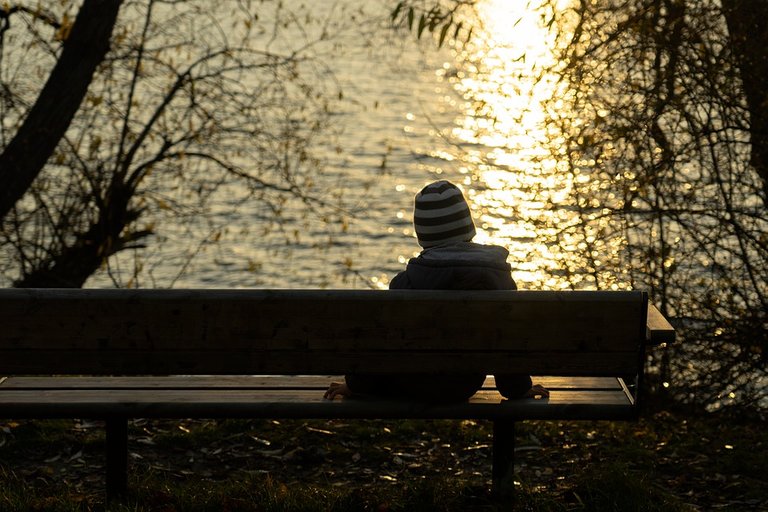
Muchas veces cuando la madre de un niño es depresiva o presenta alguna discapacidad no puede cuidar a su hijo y desea que este sea el que la cuide, invirtiendo los roles. De esta manera el niño no ha tenido como ejemplo un vínculo afectivo de cuidado para con él, sino que es él el que cuida, y la única manera de protegerse es por sus propios medios. Por lo que sólo establece relaciones donde él es el cuidador. A causa de esto el niño podría tener un deseo latente de amor y cuidados pero con rencor hacia las personas que no se lo brindaron, así como también presenta ansiedad y culpa por sentir dichos deseos.
Many times when the mother of a child is depressed or has a disability, she cannot take care of her child and wants the child to be the one who takes care of her, reversing the roles. In this way the child has not had as an example an affective bond of care for him, but he is the one who takes care, and the only way to protect himself is by his own means. So he only establishes relationships where he is the caregiver. Because of this, the child may have a latent desire for love and care but with resentment towards the people who did not provide it, as well as anxiety and guilt for feeling such desires.


En fin, a pesar de los momentos cruciales por los que pasamos actualmente, se hace imprescindible dedicar mayor tiempo a nuestros hijos, o al infante del cual somos responsables, de lo contrario, seremos los culpables de formar un joven agresivo, delictivo, sin amor, que solo pensará en hacer cosas para llamar la atención y así creer que en la popularidad está la clave para sentirse mejor internamente. Amen a sus chamos, demuéstrenle todo su amor y verán los grandes frutos. Hasta la próxima.
In short, in spite of the crucial moments we are currently going through, it is essential to dedicate more time to our children, or to the infant for whom we are responsible, otherwise, we will be guilty of forming an aggressive, delinquent, loveless youngster, who will only think of doing things to attract attention and thus believe that popularity is the key to feel better internally. Love your kids, show them all your love and you will see great results. See you next time.


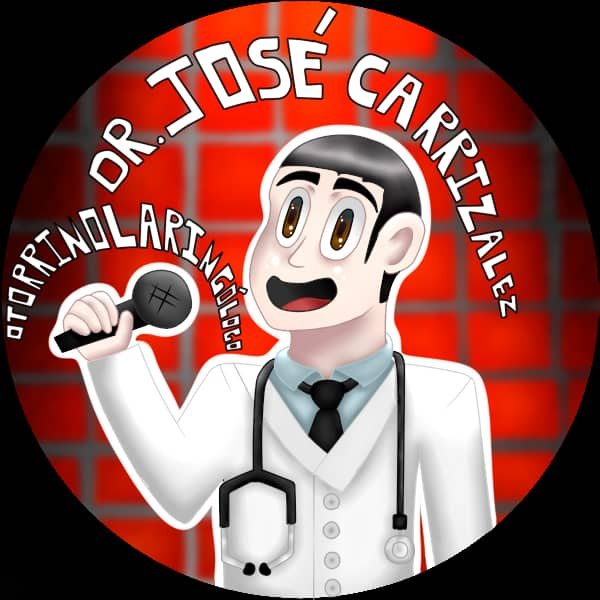




https://twitter.com/JosCarrizalez3/status/1436798782914576388
The rewards earned on this comment will go directly to the person sharing the post on Twitter as long as they are registered with @poshtoken. Sign up at https://hiveposh.com.
Wow, incriblemente elaborado, solamente puedo decir, WOW. Aunque quisiera mas fuentes, al menos citas de donde sacaste algunas cosas :D
Pai saludos..
Lo q pasa q tengo ensayos míos de cuando hice mi especialización en docencia y bueno... esos no puedo citarlos xq solo están plasmados en mi pendrive y otras en mis carpetas archivadas jejeje
Entiendo, entonces te basas en ti mismo del pasado para elaborar estas ideas, curioso.